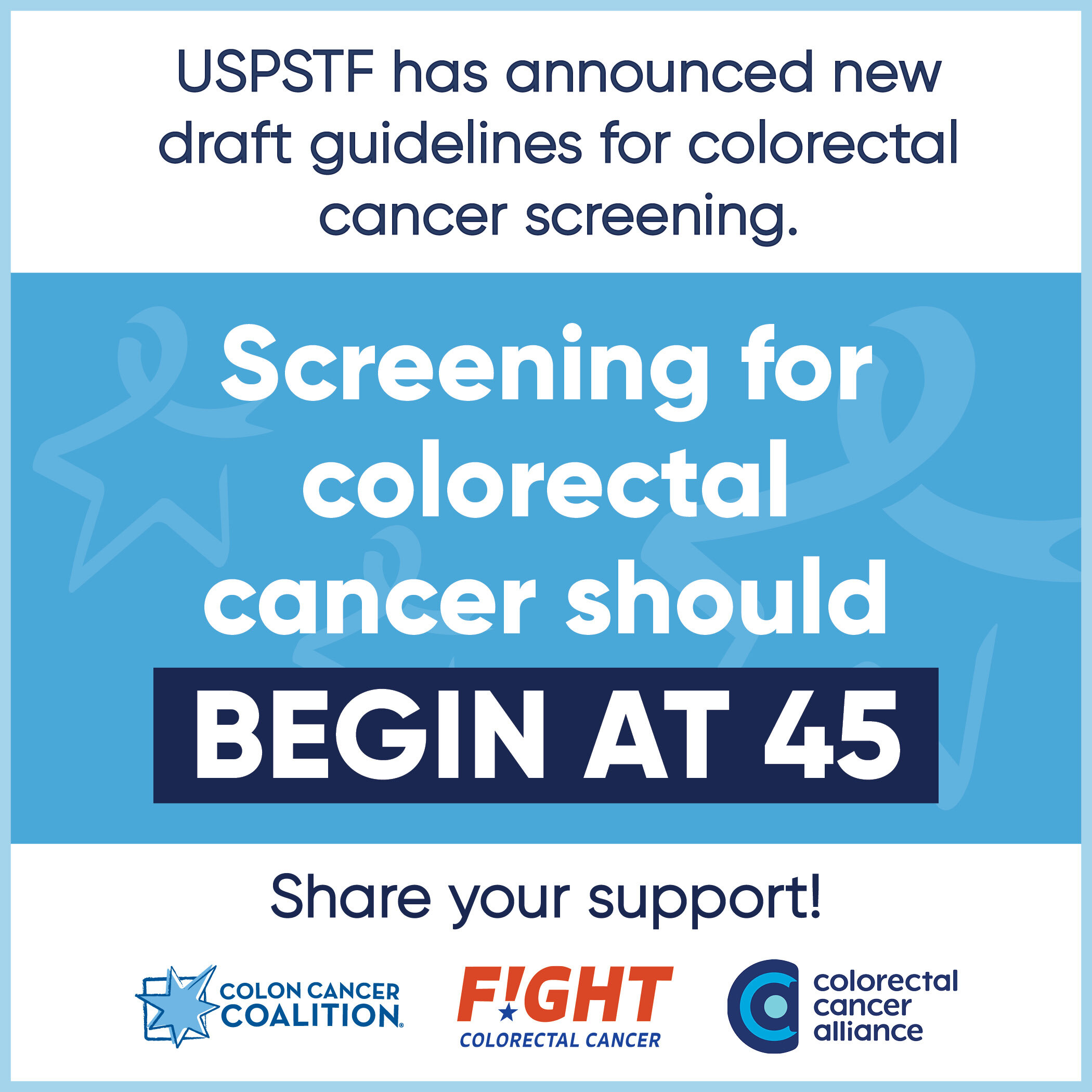Help Change the Screening Age to 45
Help change the covered screening age for colorectal cancer screening to 45
The United States Preventive Services Task Force (USPSTF) announced its intent to recommend that colorectal cancer (CRC) screenings begin at 45 years old for individuals at average risk. The majority of health insurance carriers in the United States will follow the USPSTF recommendation once finalized. This means that people age 45 and older will, in most cases, be eligible for insurance reimbursement for CRC screening. This recommendation lowers the USPSTF’s recommendation from 50 to 45, and aligns with the American Cancer Society’s 2018 recommendation that screening begin at age 45 based on an analysis published in the Journal of the National Cancer Institute. The recommendation is now in draft form and open for public comment.
What does this mean for patients?
It means it is required that private insurance plans subject to the Affordable Care Act (ACA) and Medicare plans provide coverage for the service without any co-pay or out-of-pocket costs to the patient. The CRC screening recommendations are still a draft. Insurance will not cover the change in guidelines until this is officially determined.
A group of leading CRC non-profits, including the Colorectal Cancer Alliance, Fight Colorectal Cancer, and the Colon Cancer Coalition, are celebrating this draft recommendation as a success for health advocacy, and see it as a necessary step forward to protect the well-being of Americans. This change reflects updated CRC evidence particularly the upward trend in CRC diagnoses among people under age 50, known as young-onset or early-age-onset CRC. Alarmingly, the incidence of young-onset CRC has increased by 2% every year since 1990, with no end in sight.
75% of all young-onset cases are diagnosed between ages 40-49. Furthermore, a recent study demonstrated a steep increase in CRC incidence between ages 49 and 50, with most cases diagnosed at an invasive stage among patients 50 years old, specifically. This suggests that these cancers were developing undetected for several years prior to the diagnosis at age 50.
To all of the patients, survivors, and caregivers of young- or early-onset colorectal cancer, the Colorectal Cancer Alliance, Fight Colorectal Cancer and Colon Cancer Coalition recognize your experience is inextricably tied to this life-saving decision. Your journey and struggle with this disease has not been in vain.

